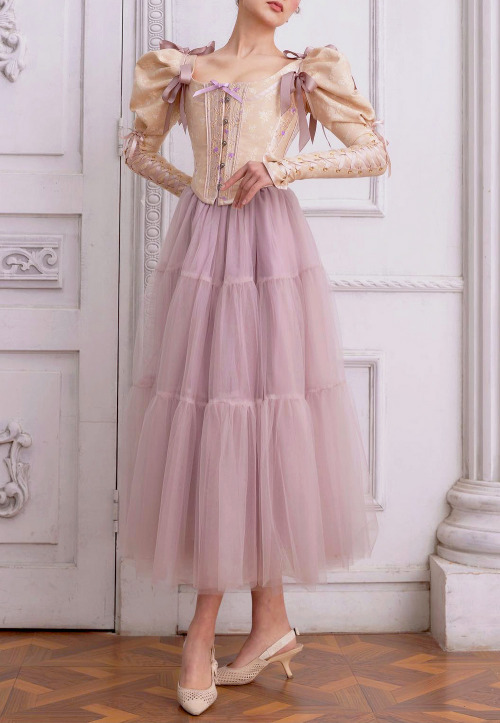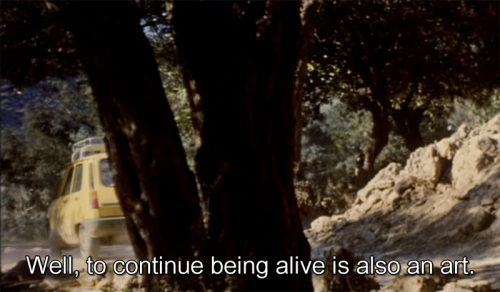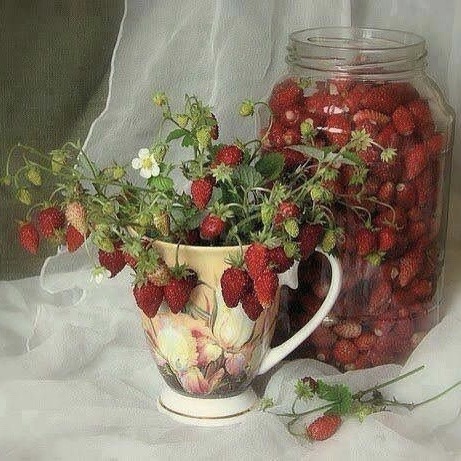— David Cronenberg, Consumed

— David Cronenberg, Consumed
More Posts from Melzinhaxuxu and Others






cottage lifestyle

Andrew Reid (1887 - c. 1975)
Portrait of a Lady

September 2023 witch guide
September 2023 witch guide
Full moon: September 29th
New moon: September 14th
Sabbats: Mabon September 23rd
September Harvest Moon
Also known as: Autumn moon, falling leaves moon, song moon, leaves turning moon, moon of brown leaves, yellow leaf moon, wine moon & Full corn moon
Element: Earth
Zodiac: Virgon& Libra
Animal spirits: Trooping Faeries
Deities: Brigid, Ceres, Ch'ang-o, Demeter, Freya, Isis & Vesta
Animals: Jackal & snake
Birds: Ibis & sparrow
Trees: Bay, hawthorn, hazel & larch
Herbs/plants: Copal, fennel, rye, skullcap, valerian, wheat & witch hazel
Flowers: Lily & Narcissus
Scents: Bergamot, gardenia, mastic & storax
Stones: Bloodstone, chrysolite, citrine, olivine, peridot & sapphire
Colors: Browns, dark blue, greens & yellows ( Earth tones)
Energy: Balance of light & dark, dietary matters, employment, health, intellectual pursuits, prosperity, psychism, rest, spirituality, success & work environments. Also cleaning & straightening mentally, physically & spiritually.
Technically, the Harvest Moon is the Full Moon closest to the September equinox around September 21st. The Harvest Moon is the only Full Moon name determined by the equinox rather than a month. Most years, it’s in September, but around every three years, it falls in October.
In September, the Full Moon is the Corn Moon from the Native American tribes harvesting their corn. It can also be the Harvest Moon, which corresponds with the Anglo-Saxon name, while Celtic and Old English names are Wine Moon, Song Moon, and Barley Moon.
Mabon
Also known as: Autumn Equinox, Cornucopia, Witch's Thanksgiving & Alban Elved
Season: Fall
Symbols: Acorns, apples, autumn leaves, berries, corn, cornucopia (horn of plenty), dried seeds, gourds, grains, grapes, ivy, pine cones, pomegranates, vines, wheat, white roses & wine
Colors: Blue brown, drk red, deep gold, gold, indigo, lead green, maroon, orange, red, russet, violet & yellow
Oils/incense: Apple, apple blossom, benzoin, black pepper, hay/straw, myrrh, passion flower, patchouli, pine, red poppy & sage
Animals: Dog, goose, hawk, swan, swallow & wolf
Stones: Agate, amethyst, carnelian, lapis lazuli, sapphire, yellow Agate & yellow topaz
Foods: Apples, blackberries, blackberry wine, bread, carrots, cider, corn, cornbread, grapes, heather wine, nuts, onions, pomegranates, potatoes, squash, vegetables, wheat & winw
Herbs/plants: Acorn, benzoin, cedar, corn, cypress, ferns, grains, hazel, hops, ivy, myrrh, oak, pine, sage, sassafras, Salomon's seal, thistle, tobacco & wheat
Flowers: Aster, heather, honeysuckle, marigold, milkweed, mum,passion flower& rose
Goddesses: Danu, Epona, Modron, Morrigan, Muses, Pomona, Persephone, Sophia & Sura
Gods: Esus, Green Man, Hermes, Mabon, Mannanan, Toth & Thor
Issues, Intentions & Powers: Accomplishment, agriculture, balance, goals, gratitude & grounding
Spellworks: Balance, harmony, protection, prosperity, security & self confidence
Related festivals:
• Sukkot- is a Torah-commanded holiday celebrated for seven days, beginning on the 15th day of the month of Tishrei. It is one of the Three Pilgrimage Festivals (Hebrew: שלוש רגלים, shalosh regalim) on which those Israelites who could were commanded to make a pilgrimage to the Temple in Jerusalem. In addition to its harvest roots, the holiday also holds spiritual importance with regard to its abandonment of materialism to focus on nationhood, spirituality, and hospitality, this principle underlying the construction of a temporary, almost nomadic, structure of a sukkah.
• Thanksgiving- This is a secular holiday which is similar to the cell of Mabon; A day to give thanks for the food & blessings of the previous year. The American Thanksgiving is the last Thursday of November while the Canadian Thanksgiving is celebrated in October
• Festival of Dionysus- There were several festivals that honored Dionysus, the God of wine. It was a time of fun, games, feasting & drinking wine.
Activities:
•Scatter offerings in a harvested fields, Offer libations to trees
• Decorate your home and/or altar space for fall
• Bake bread
• Perform a ritual to restore balance and harmony to your life
• Cleanse your home of negative energies
• Pick apples
• Have a dinner or feast with your family and/or friends
• Set intentions for the upcoming year
• Purge what is no longer serving you
•Take a walk in the woods
• Enjoy a pumpkin spice latte
• Donate to your local food bank
• Gather dried herbs, plants, seeds & pods
• Learn something new
• Make wine
• Brew an apple cinnamon simmer pot
• Create an outdoor Mabon altar
•Adorn burial sites with leaves, acorns, & pinecones to honor those who have passed over & visit their graves
Many cultures see the second harvest (after the first harvest Lammas) and equinox as a time for giving thanks. This time of year is when farmers know how well their summer crops did, and how well fed their animals have become. This determines whether you and your family would have enough food for the winter. That is why people used to give thanks around this time, thanks for their crops, and animals, and food.
The name Mabon comes from the Welsh God, who was the son of the Earth Mother Goddess. However, there is evidence that the name was adopted in the 1970s, and the holiday was not originally a Celtic celebration.
Some believe Night and day are of equal legth and the God's energy & strength are nearly gone . The Goddess begins to mourn the loss she knows is coming, but knows he will return when he reborn at Yule.
Sources:
Farmersalmanac .com
Wikipedia
Llewellyn's Complete Book of Correspondences by Sandra Kines
A Witch's Book of Correspondences by Viktorija Briggs
Mabon: Rituals, Recipes & Lore for the Autumn Equinox Llewellyn's Sabbat Essentials
“But in a solitary life, there are rare moments when another soul dips near yours, as stars once a year brush the earth. Such a constellation was he to me.” ― Madeline Miller, Circe




Favourite Designs: LaceMade ‘Princess StellaLou’ Corset II Museum Collection
Weird and Wonderful Irregular Galaxies
Spiral and elliptical galaxies seem neatly put together, but what happened to irregular galaxies? Irregular galaxies have one-of-a-kind shapes and many look like blobs! Why do they look the way they do? Astronomers think the uniqueness of these galaxies results from their interactions with other galaxies — like when they pass close to one another or even collide!

Looking back at the early universe with the help of our Hubble Space Telescope’s “deep field” observations, astronomers can peek at galaxies millions and billions of light-years away. They noticed that these far-away galaxies appear unusually messy, showing more star formation and mergers than galaxies closer to the Milky Way.

We also see irregular galaxies closer to home, though. Some may form when two galaxies pass close together in a near-miss. When this happens, their gravity pulls stars out of place in both galaxies, messing up the neat structure they originally had as spiral or elliptical galaxies. Think of it like this: you happen to have a pile of papers sitting at the edge of a table and when someone passes close by the papers become ruffled and may scatter everywhere! Even though the two galaxies never touched, gravity's effects leave them looking smeared or distorted.

Some irregular galaxies result from the collision between two galaxies. And while some of these look like a blob of stars and dust, others form dazzling ring galaxies! Scientists think these may be a product of collisions between small and large galaxies. These collisions cause ripples that disturb both galaxies, throwing dust, gas, and stars outward. When this happens, it pushes out a ring of material, causing gas clouds to collide and spark the birth of new stars. After just a few million years, stars larger than our Sun explode as supernovae, leaving neutron stars and black holes throughout the ring!

Not all galaxy collisions create irregular galaxies — our Milky Way spiral galaxy has gone through many mergers but has stayed intact! And for some interacting galaxies, being an irregular galaxy may just be a phase in their transformation. We’re observing them at a snapshot in time where things are messy, but they may eventually become neat and structured spirals and ellipticals.

Irregular galaxies are similar to each other, but unique and beautiful because of their different interactions, whether they’re just passing another galaxy or taking part in a dramatic collision. Keep up with NASA Universe on Facebook and Twitter where we post regularly about galaxies.
Make sure to follow us on Tumblr for your regular dose of space: http://nasa.tumblr.com.



.”Life, and Nothing More…” (Persian: زندگی و دیگر هیچ) directed by Abbas Kiarostami

Víly u Pramene (Faeries Near the Spring) by Maxilmilian Pirner (1895)




(via)
-
 winteranddeath liked this · 3 weeks ago
winteranddeath liked this · 3 weeks ago -
 aequoreavic liked this · 3 weeks ago
aequoreavic liked this · 3 weeks ago -
 youmakemenotwannadie reblogged this · 3 weeks ago
youmakemenotwannadie reblogged this · 3 weeks ago -
 whimsical-wonderings reblogged this · 3 weeks ago
whimsical-wonderings reblogged this · 3 weeks ago -
 vexianromance liked this · 3 weeks ago
vexianromance liked this · 3 weeks ago -
 nyxiotart reblogged this · 3 weeks ago
nyxiotart reblogged this · 3 weeks ago -
 nyxiotart liked this · 3 weeks ago
nyxiotart liked this · 3 weeks ago -
 islaaaa-14 liked this · 3 weeks ago
islaaaa-14 liked this · 3 weeks ago -
 beefyboybutch reblogged this · 3 weeks ago
beefyboybutch reblogged this · 3 weeks ago -
 o-official reblogged this · 3 weeks ago
o-official reblogged this · 3 weeks ago -
 that-1-frenchfry liked this · 3 weeks ago
that-1-frenchfry liked this · 3 weeks ago -
 wherewisteriaends liked this · 3 weeks ago
wherewisteriaends liked this · 3 weeks ago -
 the-tarot-witch22 liked this · 3 weeks ago
the-tarot-witch22 liked this · 3 weeks ago -
 sweetieapple reblogged this · 3 weeks ago
sweetieapple reblogged this · 3 weeks ago -
 sweetieapple liked this · 3 weeks ago
sweetieapple liked this · 3 weeks ago -
 whatthefuck1200 liked this · 3 weeks ago
whatthefuck1200 liked this · 3 weeks ago -
 easyboyrecliner liked this · 3 weeks ago
easyboyrecliner liked this · 3 weeks ago -
 fortunatelyfuriouspuppy liked this · 3 weeks ago
fortunatelyfuriouspuppy liked this · 3 weeks ago -
 peculiarsquirrellover liked this · 3 weeks ago
peculiarsquirrellover liked this · 3 weeks ago -
 babydollsammy liked this · 3 weeks ago
babydollsammy liked this · 3 weeks ago -
 faethom liked this · 3 weeks ago
faethom liked this · 3 weeks ago -
 cannibalismasametaphorforlove reblogged this · 3 weeks ago
cannibalismasametaphorforlove reblogged this · 3 weeks ago -
 cannibalismasametaphorforlove liked this · 3 weeks ago
cannibalismasametaphorforlove liked this · 3 weeks ago -
 v13nn4 liked this · 3 weeks ago
v13nn4 liked this · 3 weeks ago -
 hail-brod liked this · 3 weeks ago
hail-brod liked this · 3 weeks ago -
 that-one-mtf-chick liked this · 3 weeks ago
that-one-mtf-chick liked this · 3 weeks ago -
 discombobulatedworld liked this · 3 weeks ago
discombobulatedworld liked this · 3 weeks ago -
 love-ardour-anarchism liked this · 3 weeks ago
love-ardour-anarchism liked this · 3 weeks ago -
 blue-aladdin liked this · 3 weeks ago
blue-aladdin liked this · 3 weeks ago -
 sparklepooffff liked this · 3 weeks ago
sparklepooffff liked this · 3 weeks ago -
 fairypurr liked this · 3 weeks ago
fairypurr liked this · 3 weeks ago -
 thyhelenah liked this · 3 weeks ago
thyhelenah liked this · 3 weeks ago -
 severedscr0te666 liked this · 3 weeks ago
severedscr0te666 liked this · 3 weeks ago -
 emmiesarchive liked this · 3 weeks ago
emmiesarchive liked this · 3 weeks ago -
 rsyyxo liked this · 3 weeks ago
rsyyxo liked this · 3 weeks ago -
 intertwiningflesh99 liked this · 3 weeks ago
intertwiningflesh99 liked this · 3 weeks ago -
 lunaticella liked this · 3 weeks ago
lunaticella liked this · 3 weeks ago -
 kurtfromjersey liked this · 3 weeks ago
kurtfromjersey liked this · 3 weeks ago -
 blanket-hoarder liked this · 3 weeks ago
blanket-hoarder liked this · 3 weeks ago -
 meizures liked this · 3 weeks ago
meizures liked this · 3 weeks ago -
 mysticpizzaz liked this · 3 weeks ago
mysticpizzaz liked this · 3 weeks ago -
 thewitchofstjohns liked this · 3 weeks ago
thewitchofstjohns liked this · 3 weeks ago -
 miielleuse liked this · 3 weeks ago
miielleuse liked this · 3 weeks ago -
 nerdy17 liked this · 3 weeks ago
nerdy17 liked this · 3 weeks ago -
 crypticbeing reblogged this · 3 weeks ago
crypticbeing reblogged this · 3 weeks ago -
 fortayfae liked this · 3 weeks ago
fortayfae liked this · 3 weeks ago -
 seasonal-antidepressant liked this · 3 weeks ago
seasonal-antidepressant liked this · 3 weeks ago -
 halpal8196 liked this · 3 weeks ago
halpal8196 liked this · 3 weeks ago -
 sohotthateveryonedied liked this · 3 weeks ago
sohotthateveryonedied liked this · 3 weeks ago -
 fandomsrevolution liked this · 3 weeks ago
fandomsrevolution liked this · 3 weeks ago
